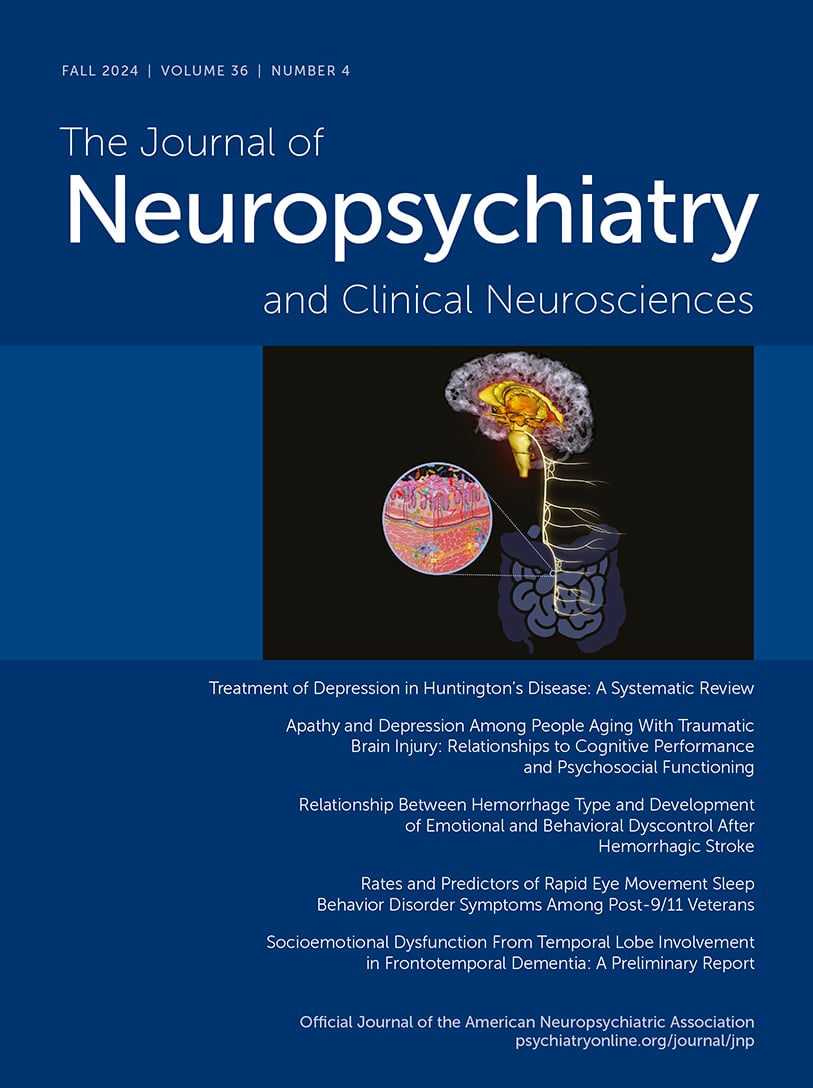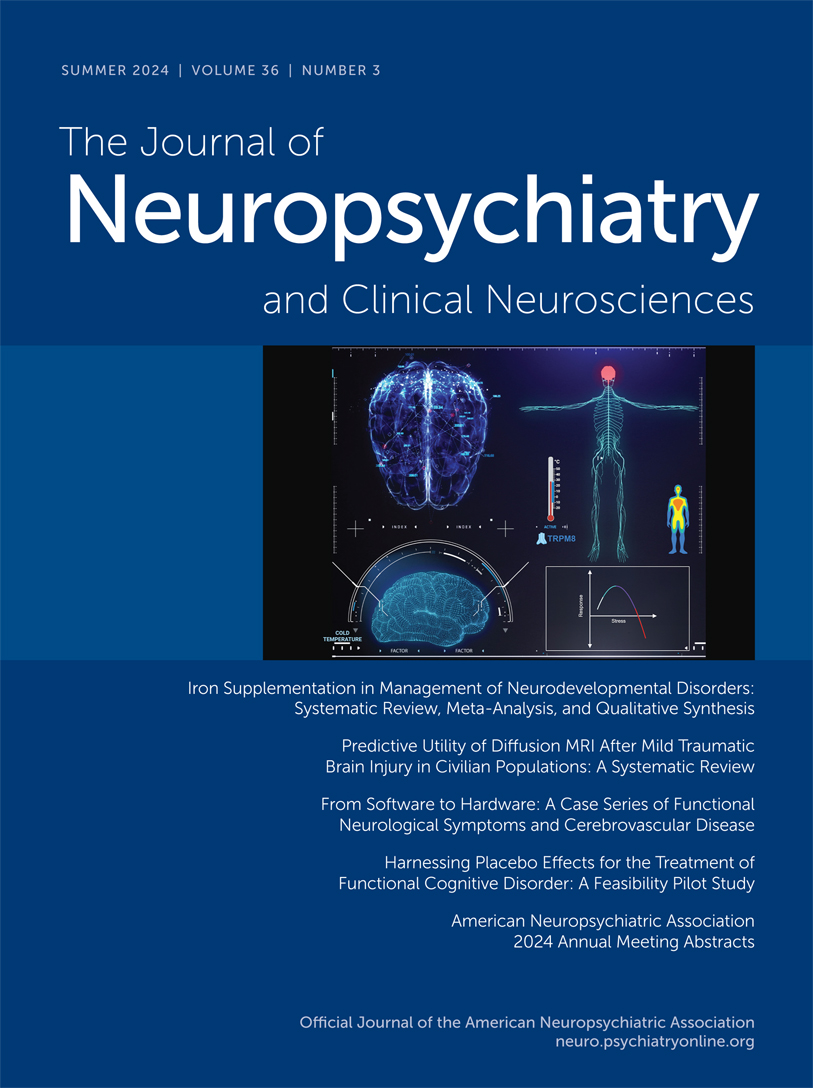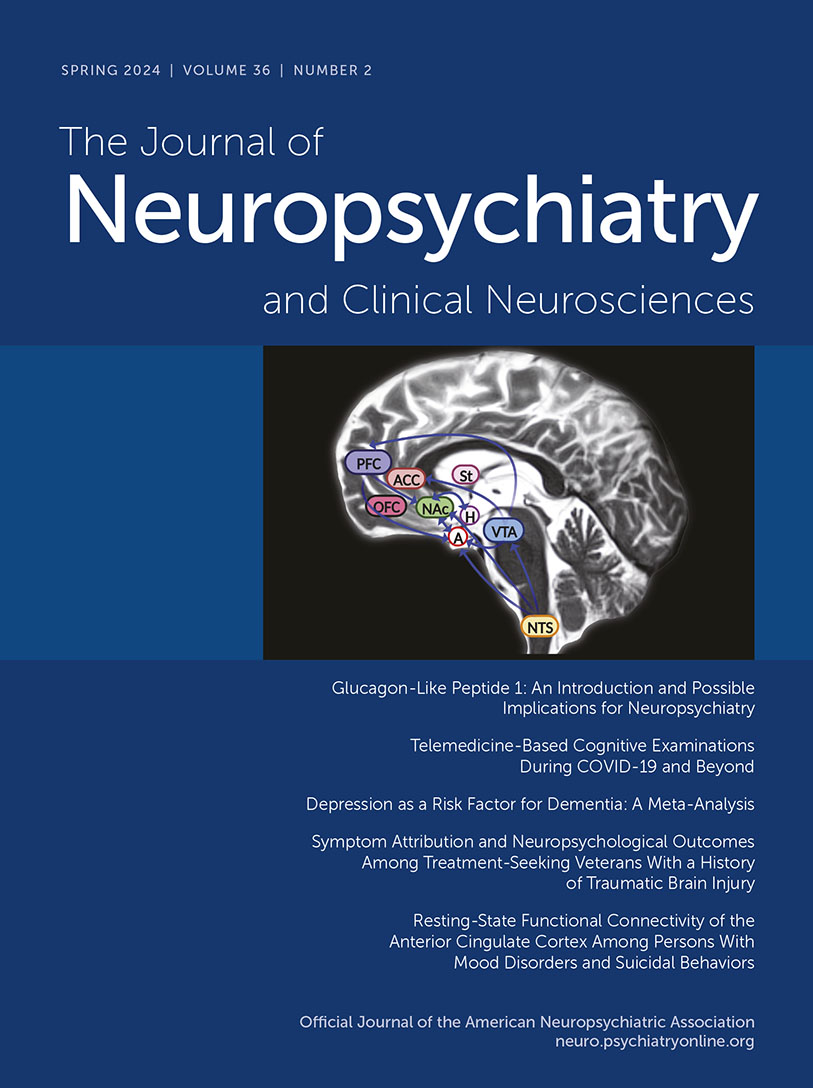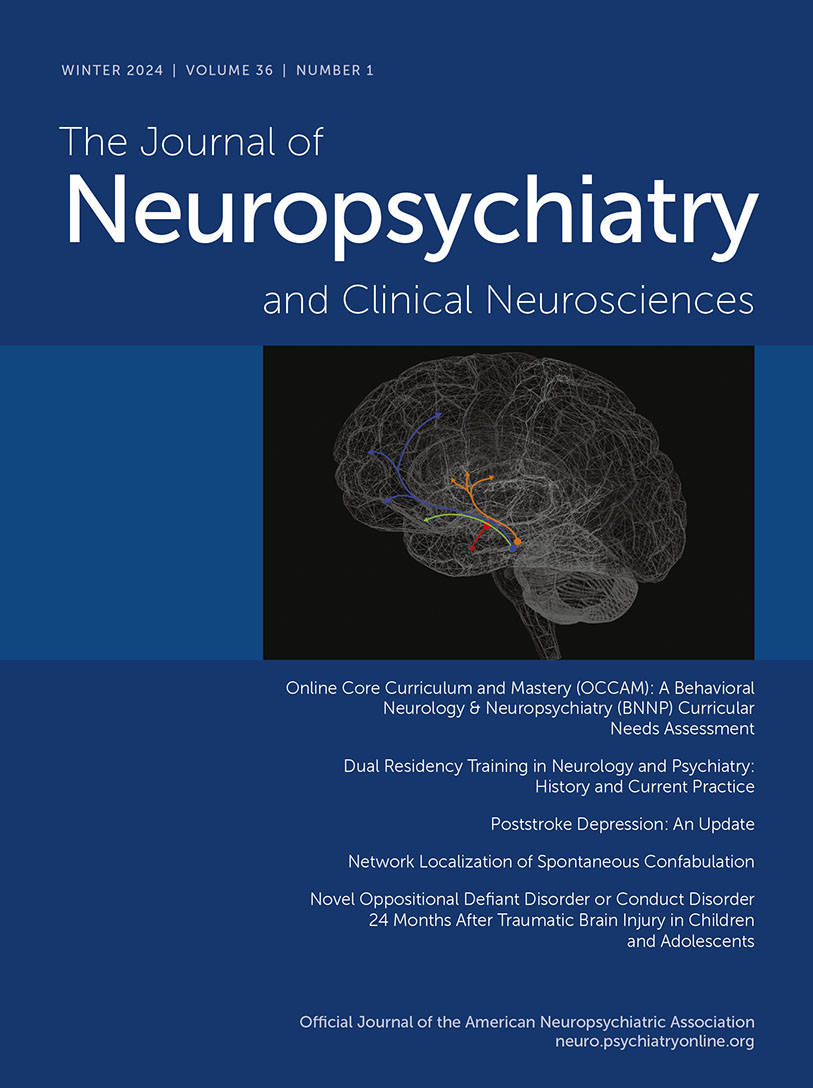The Journal of Neuropsychiatry and Clinical Neurosciences
- Volume 31
- Number 4
- October 2019
Windows to the Brain
Special Articles
Publication date: 03 April 2019
Pages289–297The potential of antidepressant medication to have a neuroprotective effect for people with multiple sclerosis (MS) has received increased interest in recent years. The possibility of antidepressants, particularly fluoxetine, for potential repurposing to ...
https://doi.org/10.1176/appi.neuropsych.18070164Regular Articles
Publication date: 03 May 2019
Pages298–305Objective: The authors investigated the association of the catechol-o-methyltransferase (COMT) gene Val158Met polymorphism with delirium risk and functional and cognitive outcomes among patients with complicated mild to moderate traumatic brain injury (TBI)...
https://doi.org/10.1176/appi.neuropsych.18080195Publication date: 25 April 2019
Pages306–318Objective: Major depression is the most common psychiatric sequela of traumatic brain injury (TBI), but effective treatment continues to be a challenge, with few studies providing guidance. Methods: In a pilot study, the authors evaluated the effect size of ...
https://doi.org/10.1176/appi.neuropsych.17110338Publication date: 23 May 2019
Pages319–327Objective: The authors examined the efficacy of valproate to reduce relapse to heavy drinking among veterans with alcohol use disorder (AUD) and neuropsychiatric comorbidities and whether antecedent traumatic brain injury (TBI) or posttraumatic stress ...
https://doi.org/10.1176/appi.neuropsych.18110250Publication date: 25 April 2019
Pages328–336Objective: In recent years, it has been proposed that problems with anger control and depression define clinical features of chronic traumatic encephalopathy (CTE). The authors examined anger problems and depression in middle-aged men from the general ...
https://doi.org/10.1176/appi.neuropsych.18110280Publication date: 25 April 2019
Pages337–345Objective: This study examined whether objectively measured pretreatment cognitive impairment predicted worse response to treatment for posttraumatic stress disorder. Participants were 113 veterans and active duty service members who participated in a new ...
https://doi.org/10.1176/appi.neuropsych.18090208Publication date: 23 May 2019
Pages346–352Objective: Parkinson’s disease (PD) is a quintessential neuropsychiatric condition in which anxiety and depressive symptoms are common and may precede motor manifestations. The authors explored the ages at onset of anxiety and depressive disorders among ...
https://doi.org/10.1176/appi.neuropsych.18090201Publication date: 03 May 2019
Pages353–360Objective: Research in animal models has shown that many EEG sleep features reflect local conditions, which is a consequence of relative inactivity of neuronal clusters. In humans, the authors previously reported that focal sleep patterns appear on the ...
https://doi.org/10.1176/appi.neuropsych.17090186Publication date: 23 May 2019
Pages361–367Objective: Functional movement and seizure disorders are still widely misunderstood and receive little public and academic attention. This is in stark contrast to their high prevalence and levels of associated disability. In an exploratory observational ...
https://doi.org/10.1176/appi.neuropsych.19010025Publication date: 23 May 2019
Pages368–377Objective: Working memory impairments represent a core cognitive deficit in schizophrenia, predictive of patients’ daily functioning, and one that is unaffected by current treatments. To address this, working memory is included in the MATRICS Consensus ...
https://doi.org/10.1176/appi.neuropsych.18060131Clinical and Research Reports
Publication date: 03 May 2019
Pages378–385Objective: Impaired empathy is a diagnostic feature of behavioral variant frontotemporal dementia (bvFTD), but it is not clear whether it is caused by a primary impairment in empathy or by general emotional blunting. Methods: Patients with bvFTD who met ...
https://doi.org/10.1176/appi.neuropsych.18090202Treatment in Behavioral Neurology & Neuropsychiatry
Publication date: 10 June 2019
Pages386–391Myasthenia gravis is a neuroimmunological disorder leading to skeletal muscle weakness. Common symptoms of the disease, such as anxiety, depression, and insomnia, can cause significant distress in patients. Unfortunately, selecting an appropriate ...
https://doi.org/10.1176/appi.neuropsych.18120383Case Report
Icons in Neuropsychiatry
Letters
Departments
Past Issues
View Issues Archive
Vol. 36 | No. 4

Vol. 36 | No. 3

Vol. 36 | No. 2
